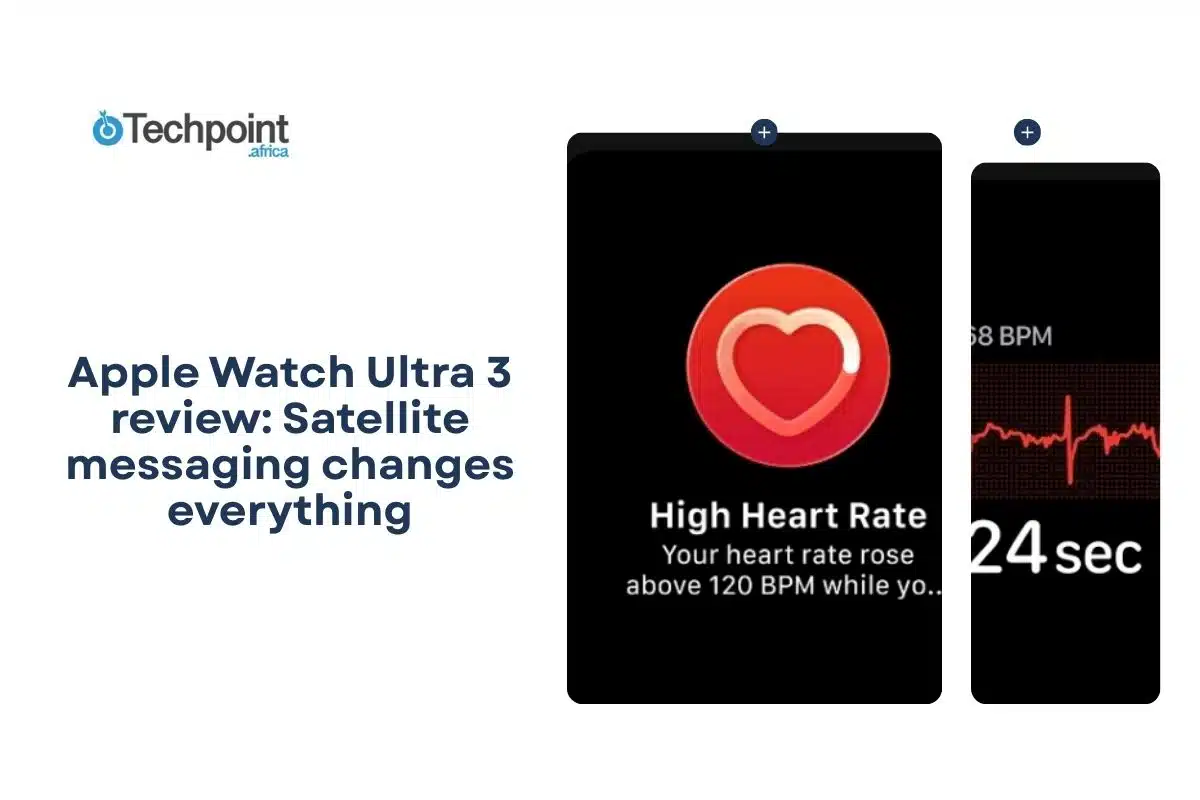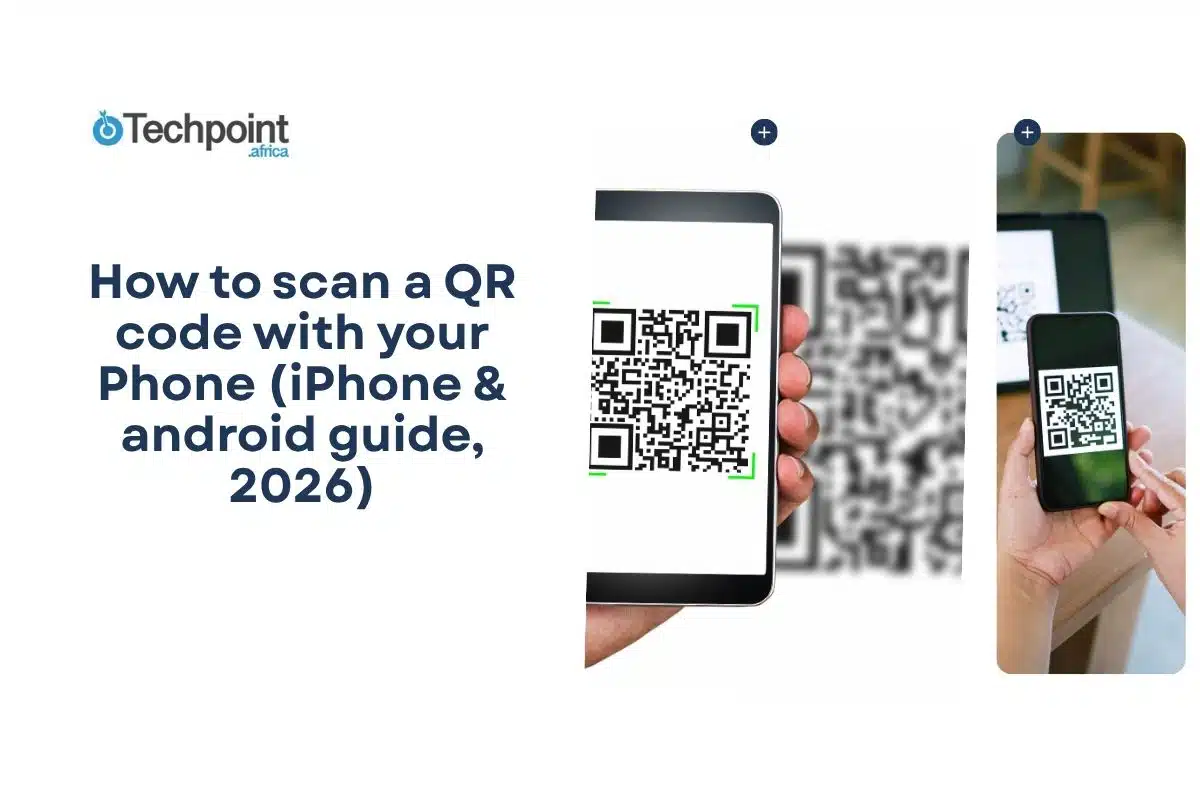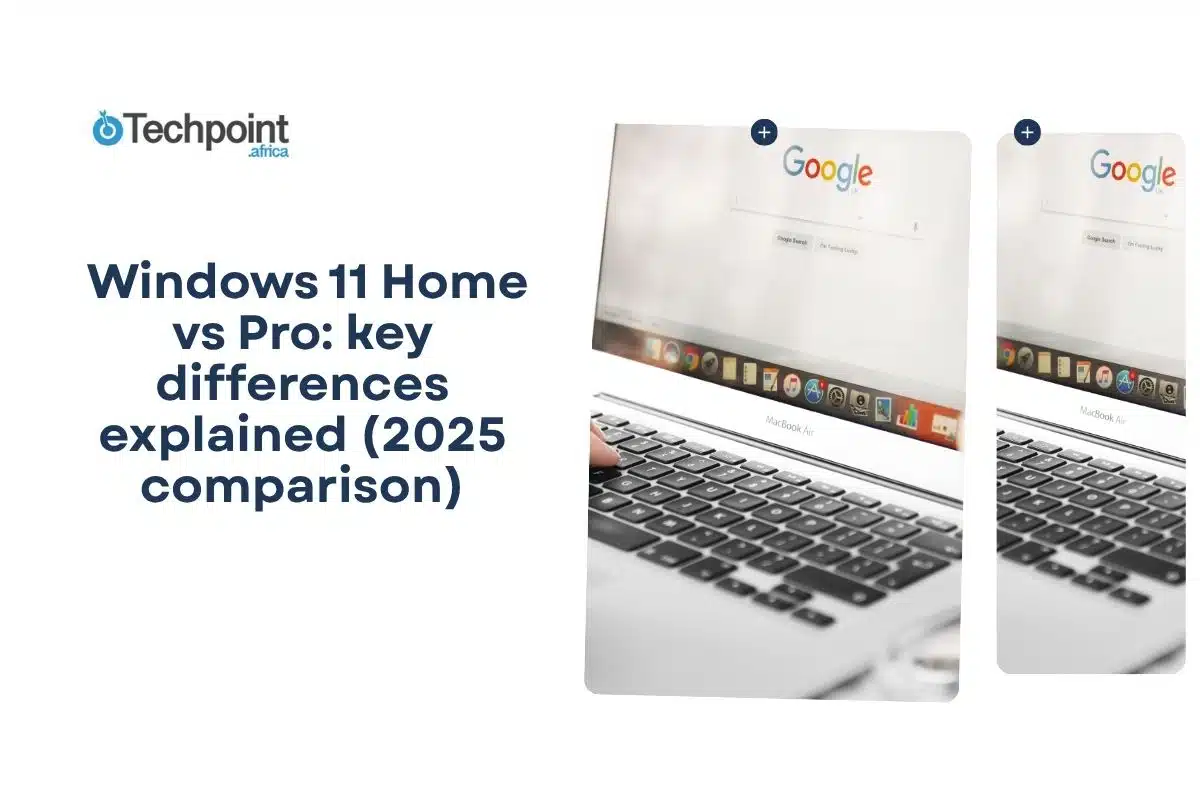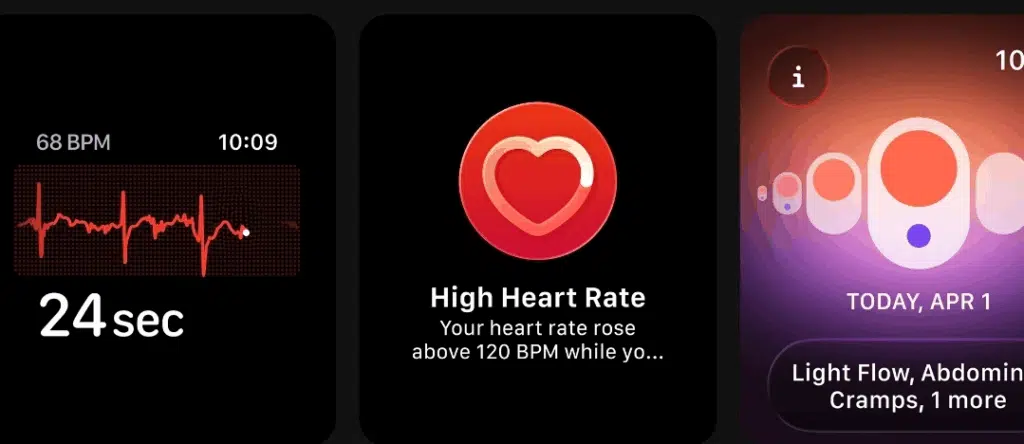
At first glance, the Apple Watch Ultra 3 looks almost identical to its predecessor, the Ultra 2. Same rugged titanium case, same bold design. But after wearing it for a week, it’s clear that Apple has made subtle yet meaningful changes that matter, especially for outdoor users and anyone curious about its new satellite features. This review takes you through those updates, what works well, and what still feels familiar.
In this review, you will learn:
- The key differences between the Ultra 3 and the Ultra 2.
- How it performs in real-world use for fitness, health, and outdoor activities.
- What new features, like satellite messaging and a bigger display, actually add.
- Whether the Ultra 3 is worth upgrading to, or if you should stick with what you have.
Specifications at a Glance
| Features | Details |
| Case Material | Titanium (Black Titanium, Natural Titanium) |
| Display | LTPO3 wide-angle OLED, Always-On, ~5% larger than Ultra 2 |
| Brightness | Up to 3,000 nits peak |
| Processor | Apple S10 SIP |
| Connectivity | 5G, LTE, Wi-Fi, Bluetooth, GPS, Satellite (LEO via Globalstar) |
| Sensors | Optical heart rate, GPS, compass, altimeter, accelerometer, gyroscope, temperature, SpO₂ |
| Battery life | Up to 42 hours typical use; up to 72 hours in Low Power Mode |
| Charging | Fast charge (15 minutes gives hours of use) |
| Bands | Alpine Loop, Trail Loop (new reflective stitching), Ocean Band |
| Software | watchOS 26 |
| Key features | Satellite SOS, Satellite messaging & Find My, Sleep Score, Hypertension notifications, Workout Buddy |
| Water resistance | WR100 (100m); EN13319 certified (recreational diving) |
| Price | $799 (same as Ultra 2) |
Price and availability
Apple kept things simple with the Ultra 3’s launch. It comes in at $799, precisely the same as the Ultra 2 when it debuted. That’s not a small amount for a smartwatch, but, notably, Apple didn’t raise the price given the rising costs we’ve seen across the wearable market. Competitors like Garmin continue to push prices higher, so maintaining the Ultra line’s stability feels like a smart move.
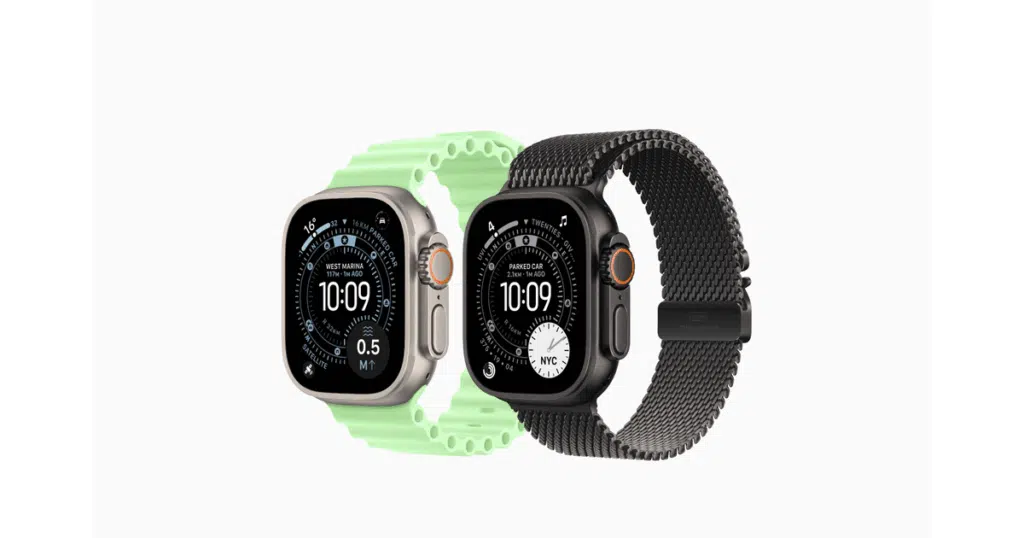
The Ultra 3 is offered in two finishes, natural titanium and black titanium, and pairs with Apple’s three familiar band options: the Alpine Loop, Trail Loop, and Ocean Band. Each band now comes in updated colours, with the Trail Loop gaining reflective stitching for better visibility at night.
As with previous models, availability is global through Apple’s website, retail stores, and authorised resellers. Since it’s priced the same as the Ultra 2, most buyers weighing both models will naturally lean toward the newer watch unless they find a significant discount on last year’s version.
Design and build
If you’ve seen the Ultra 2, you’ve essentially seen the Ultra 3. The case dimensions are unchanged, and side by side, it’s almost impossible to tell the two apart. The rugged titanium body is back, with the same squared-off profile and oversized crown that make the Ultra line stand out from the regular Apple Watch.
There are some very minor differences. The black titanium finish on the Ultra 3 appears a little lighter, closer to gray, though that might not be noticeable unless you’re holding both watches together. Otherwise, the look and feel remain consistent, which means Apple is leaning into familiarity rather than reinvention.
The bands are where you’ll spot small upgrades. The Alpine Loop, Trail Loop, and Ocean Band return, but with fresh colour options. The Trail Loop in particular has been tweaked with reflective stitching along the edges, a subtle but practical change for runners or cyclists out at night. As with previous Ultras, the overall build feels solid, durable, and purpose-built for outdoor use.
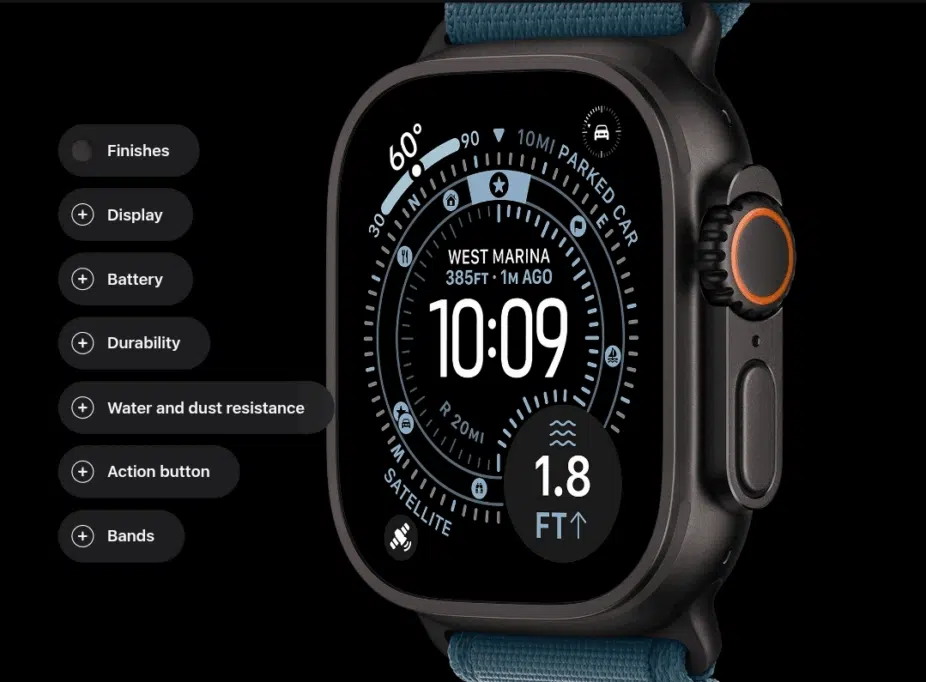
Hardware and performance
The Ultra 3 runs on Apple’s new S10 SIP, replacing the S9 from the Ultra 2. On paper, that sounds like a decent step up, but in everyday use, the difference is barely noticeable. Apps open quickly, animations feel smooth, and the watch never struggles to keep up. The truth is, Apple Watches have been fluid and responsive for years, and the Ultra 3 doesn’t really change that experience.
The optical heart rate sensor remains the same as before, which is good news because Apple’s sensors continue to be among the most accurate in the industry. I tested it against an ECG strap during several runs, and the readings were nearly identical. GPS performance was also strong, with consistently reliable tracks and, if anything, slightly cleaner than the Ultra 2, though it’s hard to say if that’s down to new hardware or just software refinements.
Overall, the Ultra 3 feels fast and accurate, but not dramatically different from its predecessor. For most users, the upgrades here are subtle rather than transformative.
Display
The display is where Apple made a few of its quieter but still noticeable changes. Peak brightness remains the same at 3,000 nits, which is already plenty for outdoor use. Even under direct sunlight, the Ultra 3 is easy to read without squinting.
The screen itself has grown slightly, about five percent larger than the Ultra 2. On paper, that doesn’t sound like much, and in practice, it isn’t game-changing. The extra space is nice, but it doesn’t fundamentally change how apps or watch faces feel.
Apple also switched to its LTPO3 wide-angle OLED panel, which improves visibility at sharper angles. In day-to-day use, the difference is minor, but in edge cases, like glancing at the watch from an awkward position, the Ultra 3 holds its clarity a bit better than the Ultra 2.
A smaller but welcome tweak is in the Always-On Display. It now updates every second, so you can see a moving second hand without raising your wrist. It’s a tiny detail, but for workouts or timing tasks, it makes the watch feel more precise.
Connectivity
One of the notable upgrades with the Ultra 3 is the move to 5G. For a smartwatch, the difference between LTE and 5G isn’t always dramatic, since most people still pair their watch with an iPhone and use Wi-Fi when available. But in situations where the watch is on its own, like downloading a podcast or streaming music while out running, the speed bump is noticeable.
Interestingly, the 5G chipset doesn’t just improve raw speeds. In my testing, LTE connections also appeared to be more stable compared to the Ultra 2. That could be down to improved antenna design or better efficiency, but either way, it helps keep the watch connected in areas where signals can be spotty.
Satellite communication
This is the Ultra 3’s headline upgrade and the most apparent reason Apple released a new Ultra this year. For the first time, an Apple Watch can connect to satellites directly, giving you a lifeline when you’re outside normal network coverage.
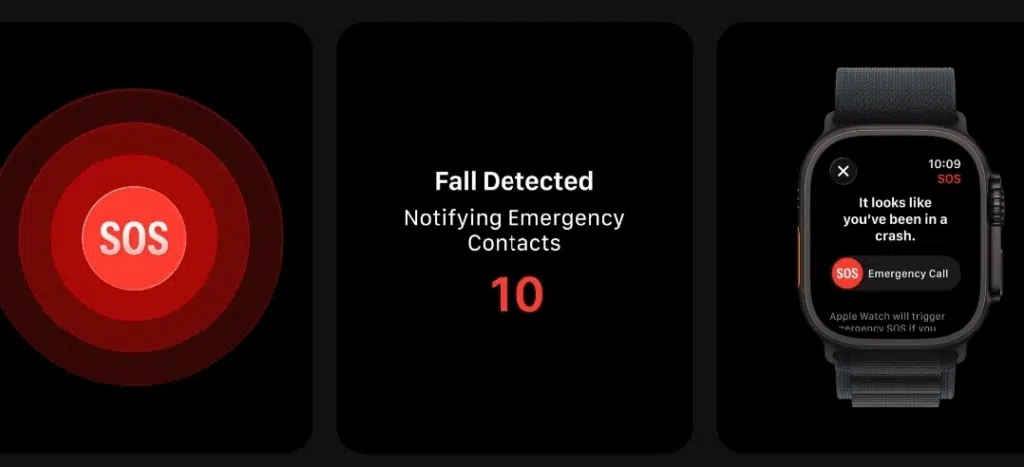
There are three main uses: Emergency SOS, location sharing, and recreational messaging. In my demo, SOS worked much like it does on recent iPhones—you hold the side button, and the watch walks you through contacting emergency services, even when you’re completely off-grid. Location sharing ties into Find My, allowing family or friends to see your location in real-time. Messaging is more limited; you can’t have a full back-and-forth like on cellular, but you can send short texts for check-ins.
In testing, the connection took about 20–30 seconds to lock onto a satellite. Once linked, messages were sent reliably, though there was a slight delay before delivery. The feature is reassuring for hikers, climbers, or anyone spending time in remote areas, but it’s not designed as a replacement for dedicated satellite communicators. Availability also varies by country, so not every buyer will get full use of it right away.
Compared with rivals like Garmin’s inReach-enabled watches, Apple’s approach feels simpler and more integrated, but also less flexible. Still, for most users, it’s a major leap forward in safety and peace of mind.
Battery Life and Charging
Battery life has always been a sticking point with Apple Watches, and the Ultra line was meant to ease that concern. The Ultra 3 pushes things a little further, rated for up to 42 hours of typical use compared to the Ultra 2’s 36. With Low Power Mode on, Apple claims up to 72 hours, though that requires cutting back features like GPS and Always-On Display.
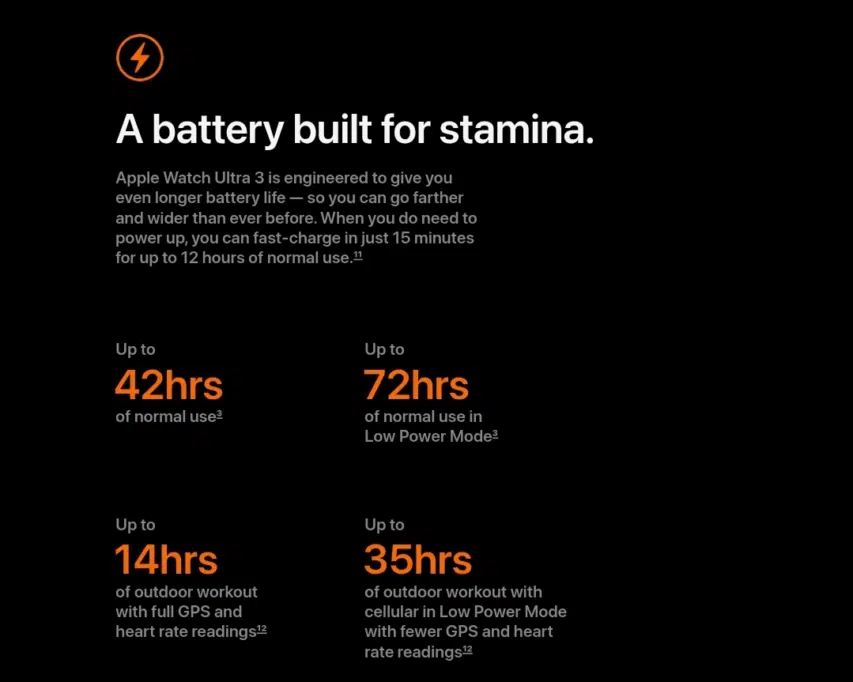
In real-world testing, I found the numbers fairly accurate. With workouts, notifications, and Always-On enabled, I still managed to finish the day with around 40 percent left. Turning off some of the extras stretched it comfortably into a second day. Heavy outdoor use with GPS and LTE active drains the battery more quickly, but it’s still a step up from last year.
Charging is quick enough that running out isn’t a big worry. A 15-minute top-up on the fast charger was enough to get me through an evening after the watch hit low battery. That’s useful, though Apple still trails Garmin’s adventure watches, which can last for days without needing a charge.
Software and watchOS 26 features
The Ultra 3 runs on watchOS 26, and while the hardware tweaks are subtle, Apple used the software to push some meaningful updates. The interface feels smoother, with transitions that utilise the brighter display more effectively. Apple also introduced new watch faces, including Waypoint, which feels designed for outdoor enthusiasts who rely on navigation.
The Workout app has been reworked with more detail and coaching-style prompts. A new feature called Workout Buddy gives real-time encouragement and alerts when you’re slipping behind your set pace, which is handy for runners and cyclists.
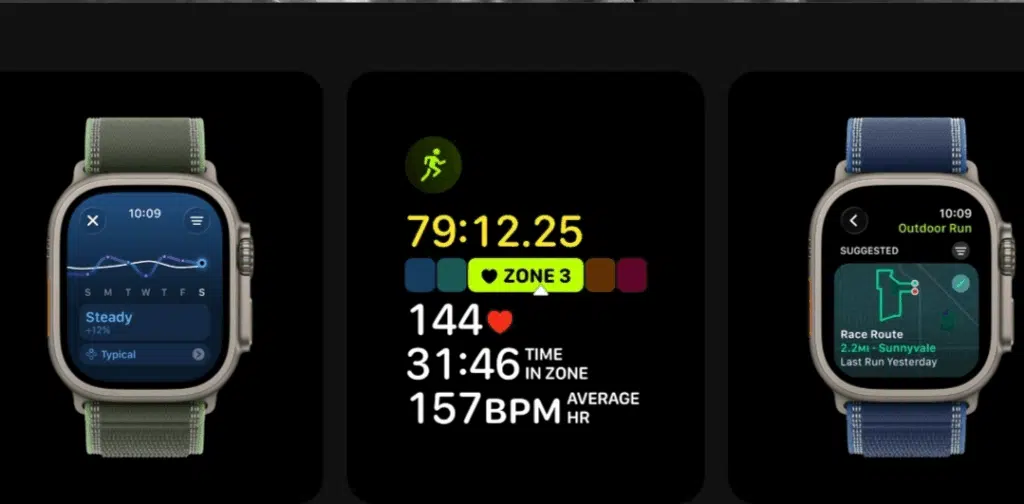
Health tracking now includes a Sleep Score, a feature that Apple has previously lagged behind Garmin on. It gives you a simple rating each morning, though it’s still less in-depth than what Garmin or Fitbit provide. There’s also a new Hypertension notification, which can alert you if your blood pressure appears consistently elevated. It’s not a full blood pressure monitor, but it’s an important safety tool that broadens the Ultra’s health focus.

Integration with the wider Apple ecosystem remains a strong point. Pairing with the iPhone feels seamless, and using the Ultra 3 with the AirPods Pro 3 made workouts more immersive thanks to adaptive audio. All of this makes the watch feel more like a hub than just a fitness tracker.
Pros and Cons of the Apple Watch Ultra 3
Pros
- Satellite connectivity for SOS, messaging, and location sharing.
- Brighter, slightly larger LTPO3 OLED display with better off-angle visibility.
- Always-On Display now updates every second.
- Improved battery life (42 hours, up to 72 in Low Power Mode).
- Rugged titanium build with fresh band options and reflective Trail Loop.
- Seamless integration with the Apple ecosystem and watchOS 26 upgrades.
Cons
- Design is nearly identical to Ultra 2, with a few visible changes.
- Performance feels the same as last year despite the new S10 chip.
- Battery life still lags far behind Garmin’s multi-day adventure watches.
- Satellite features are limited by region and are not a full replacement for dedicated devices.
- High price tag ($799) puts it out of reach for casual smartwatch users.
How to decide if the Ultra 3 is right for you
The Ultra 3 is best thought of as an incremental upgrade rather than a reinvention. If you already own an Ultra 2, most of the experience will feel familiar. Performance, design, and even battery life are only slightly improved, so unless satellite connectivity is a must-have, upgrading may not feel necessary.
For first-time buyers, the story is different. With the Ultra 3 priced the same as the Ultra 2 at launch, there’s little reason to choose last year’s model unless you find it heavily discounted. The new display refinements, improved connectivity, and safety features make this the more future-proof option.
Outdoor enthusiasts who value peace of mind will see the most benefit. The addition of satellite messaging and SOS could make a real difference in remote situations. But if you’re a casual user who sticks to city runs or gym workouts, many of these upgrades might go unused, and a standard Apple Watch Series model could save you money.
Final takeaways
- The Apple Watch Ultra 3 introduces satellite connectivity, a slightly larger display, and improved battery life, while retaining much of the Ultra 2’s design and performance.
- It’s a worthwhile choice for new buyers or outdoor users who want the security of off-grid communication.
- For Ultra 2 owners, the upgrades are minor, and holding off might make more sense unless satellite features are essential.
Final thoughts
The Apple Watch Ultra 3 doesn’t reinvent the Ultra line, but it does refine it in ways that matter to the right audience. The addition of satellite connectivity is the standout change, giving the watch a practical edge for anyone who spends time outdoors. Combined with the slightly larger display, improved Always-On performance, and a modest battery boost, it feels like a confident step forward rather than a leap.
If you’re buying into the Ultra line for the first time, this is the version to get. If you’re coming from the Ultra 2, the decision depends on how much you value safety features and off-grid communication. For some, that peace of mind will be worth the upgrade. For others, the Ultra 2 still holds up just fine.
Have you tried the Ultra 3 yet, or are you sticking with an older Apple Watch? Share your thoughts and experiences in the comments — we’d love to hear how it fits into your daily life.
More to Read
Apple September event 2025: All the new products announced
AirPods Pro 3 (2025): Features, specs, price & everything Apple announced
Apple iPhone 17 Pro Full specifications: Everything you need to know

